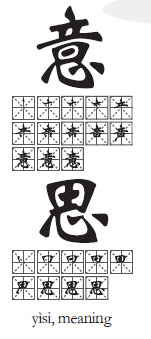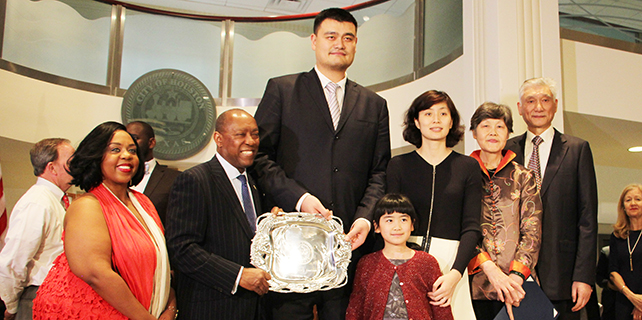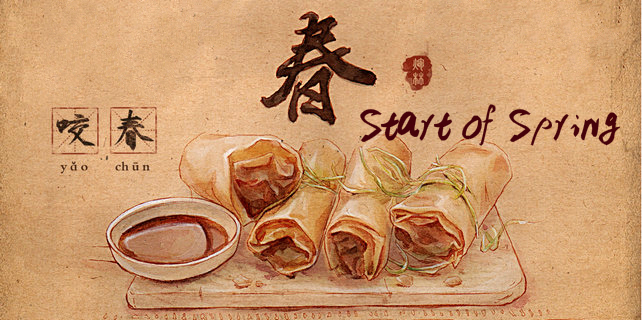A Meaningful Exchange

Certain expressions in any language seem designed to befuddle non-native speakers, and Chinese is no exception
The World of Chinese
At some point in their careers, all learners of second languages come to suspect that some expressions are built in specifically to ensure that non-natives can never master them, like some prehistoric tribal way of sniffing out the intruder while also having a laugh at the person's expense. In Chinese there is the term (ysi), which literally means "meaning", but, as it's commonly said in China, there are at least 10 meanings to meaning.
In some ways it's appropriate that "meaning" should be one of the most meaningful Chinese words. As a so-called high-context language, spoken Chinese can be full of empty gestures and hidden politeness pitfalls that allow speakers to hint at their intentions without actually committing to them in the content of their speech. Accordingly, the word "meaning" itself has been coopted to hint at lots of things you're too polite to say but actually wish to mean. An old joke demonstrates it best:

An employee walks into his boss's office and drops off a red envelope full of cash.
1 . 领导:你这是什么意思?
lngdo: n zhsh shnme ysi?
Boss: What is the meaning of this?
2., 员工:没什么意思, 意思意思。
yungng: mi shnme ysi, ysi ysi.
Employee: There's no meaning really, [it's a] meaning meaning.
3. 领导:你这就不够意思了。
lngdo: n zh ji bgu ysi le.
Boss: Well, now, that's not enough meaning.
4. 员工:小意思,小意思。
yungng: xio ysi, xio ysi.
Employee: Small meaning, small meaning.
5. 领导:你这人真有意思。
lng do: n zh rn zhn yu ysi.
Boss: You have so much meaning.
6. 员工: 其实也没有别的意思。
yungng: qsh y miyu bide ysi.
Employee: Actually, I didn't have any other meaning.
7. 领导:那我就不好意思了。
lng do: n w ji bho ysi le.
Boss: Then it'll be "difficult for me to mean".
8. 员工:是我不好意思。
yungng: sh w bho ysi.
Employee: No, it's me who finds it "difficult to mean".
Still with us? Here's a categorical breakdown of the possible meanings you could use "meaning" to mean, in the order in which they appear in the joke.
1 - Literally, "meaning", what an action denotes or symbolizes. The boss is suspicious of why the employee is handing him cash out of the blue.
2 - Appreciation, a gesture of respect. The employee protests that there's no intention to bribe or hint at anything, that his action was meaningful for meaning's sake; however, a person who says this usually does have some ulterior motive - as the old saying goes, he does protest too much, and ("meaning meaning") can be a socially coded way to hint that you're giving a person some material benefit without being so crass as to mention it. It's a must-have expression for all corrupt officials.
3 - Intimacy, frankness. This is the most difficult "meaning" of the bunch. The way it's used in this joke is the boss ribbing the employee that he's selling himself short, a tongue-in-cheek way of saying that they're such good friends that the employee doesn't need to be making him respectful offerings. It also hints that the boss knows the employee isn't just handing out cash for nothing, but they're such good friends that the employee should have just come right out and ask what he wanted. While this joke uses an ironic version of (b gu ysi, "not enough meaning"), you can also use it the normal way - for instance, if a friend in your group doesn't pay their share of the bill, or if anyone betrays your trust in any way, then they're .
4 - Care, an action or token into which someone has put some effort and concern. Similar to 2, but this puts emphasis on the concern on the giver's part rather than the meaning it holds for the receiver. Here, the employee is protesting again that the gift is just small potatoes on his part.
5 - Interest, amusement. To say that a person or thing "has meaning" is to say they intrigue you in some way. Here, the boss is amused by his employee's protests.
6 - Motive. The employee protests a final time (see a pattern?), saying that he had no ulterior motive.
7, 8 - Part of a phrase that makes apology for your rudeness. The two final uses of "meaning" both have this meaning, used within the phrase (b ho ysi) in two different ways. The phrase literally means "it's difficult to mean", and can be literally interpreted as the speaker saying they've been put (or put themselves) in a position where it's hard for them to muddy their intentions, which is awkward and embarrassing because, hey, that's what we've been trying to do this whole time by abusing the word "meaning" in various ways. In this joke, the first instance of is the boss telling the employee he'll accept the gift ("Please excuse my rudeness, I will help myself".) The second instance is the employee apologizing ("No, it's me who should be embarrassed!") as a way of making sure the boss isn't humbling himself too much, saying that the gift was too small and not deserving of so much respect.
















